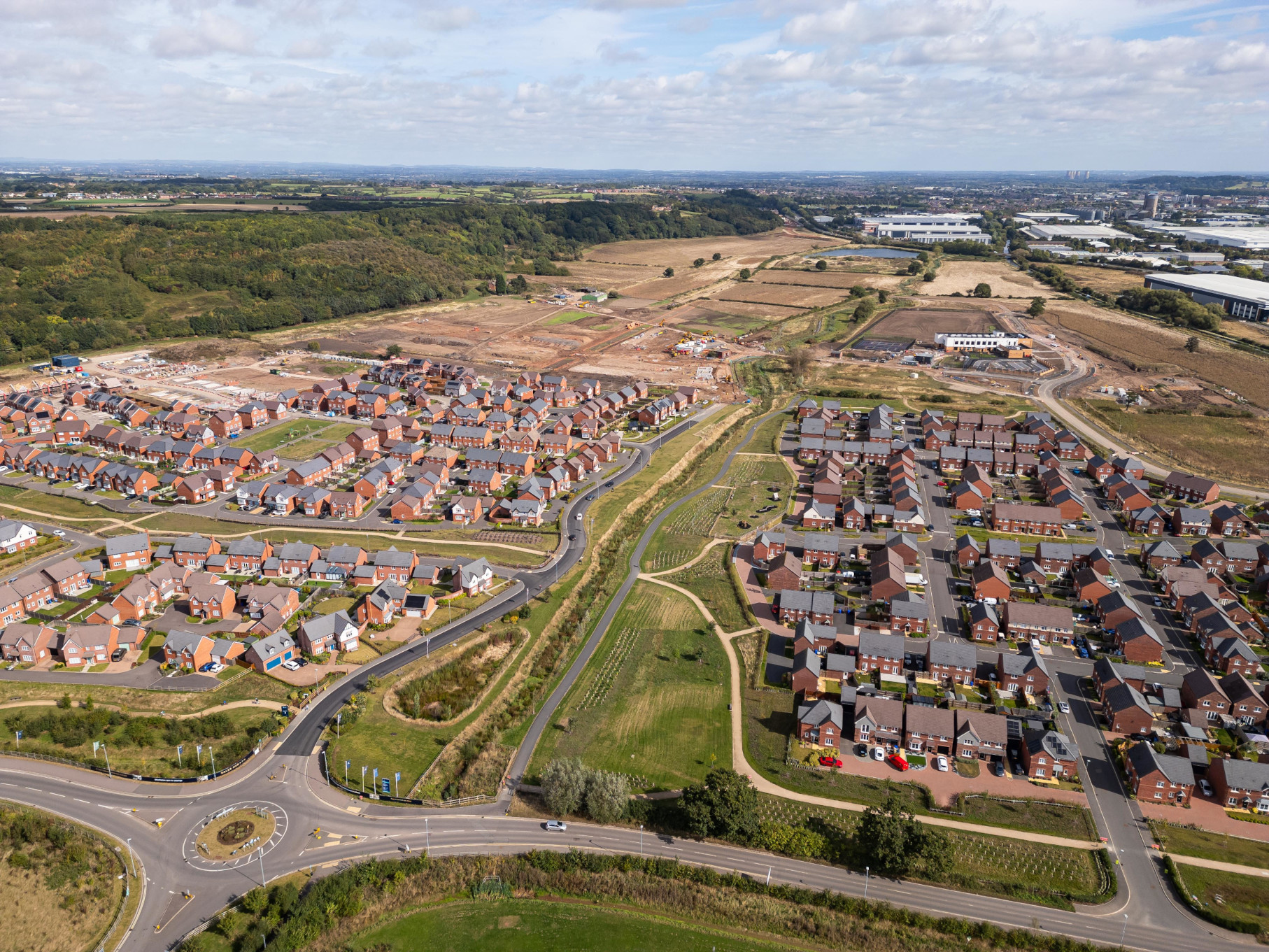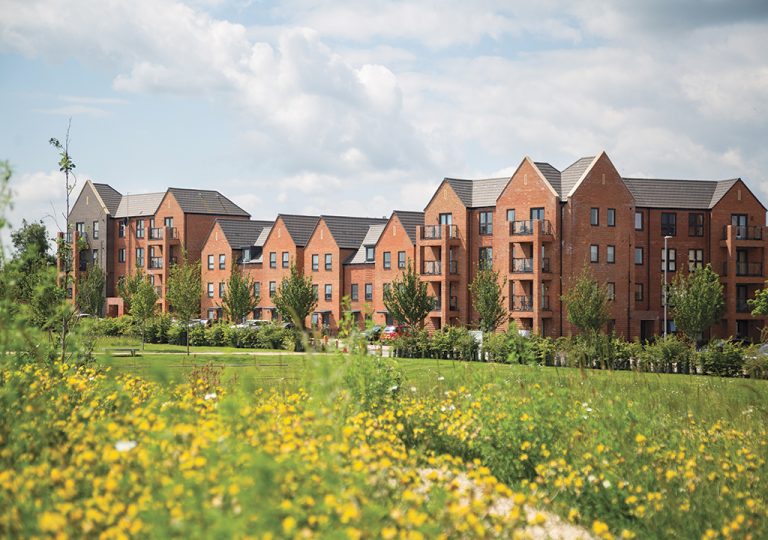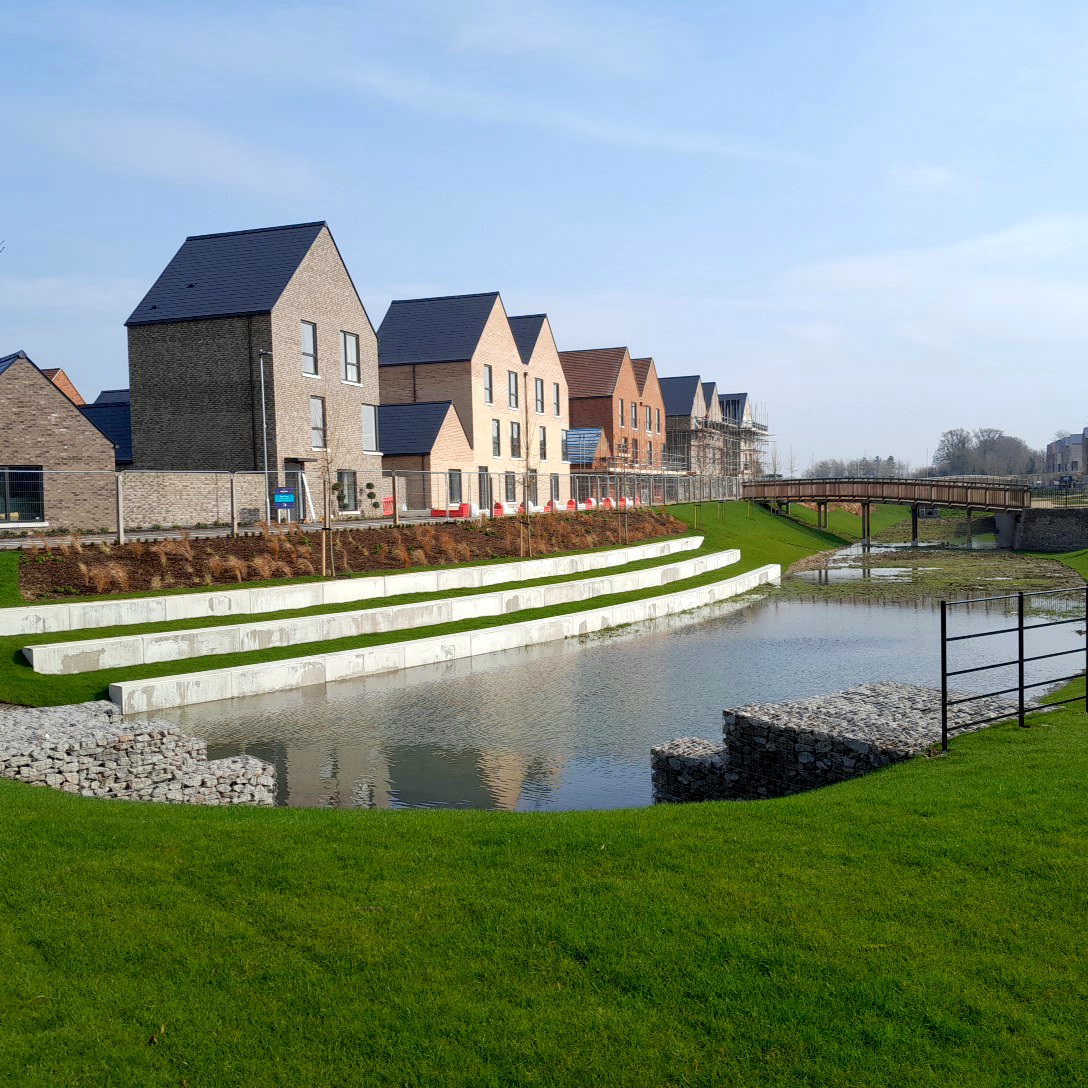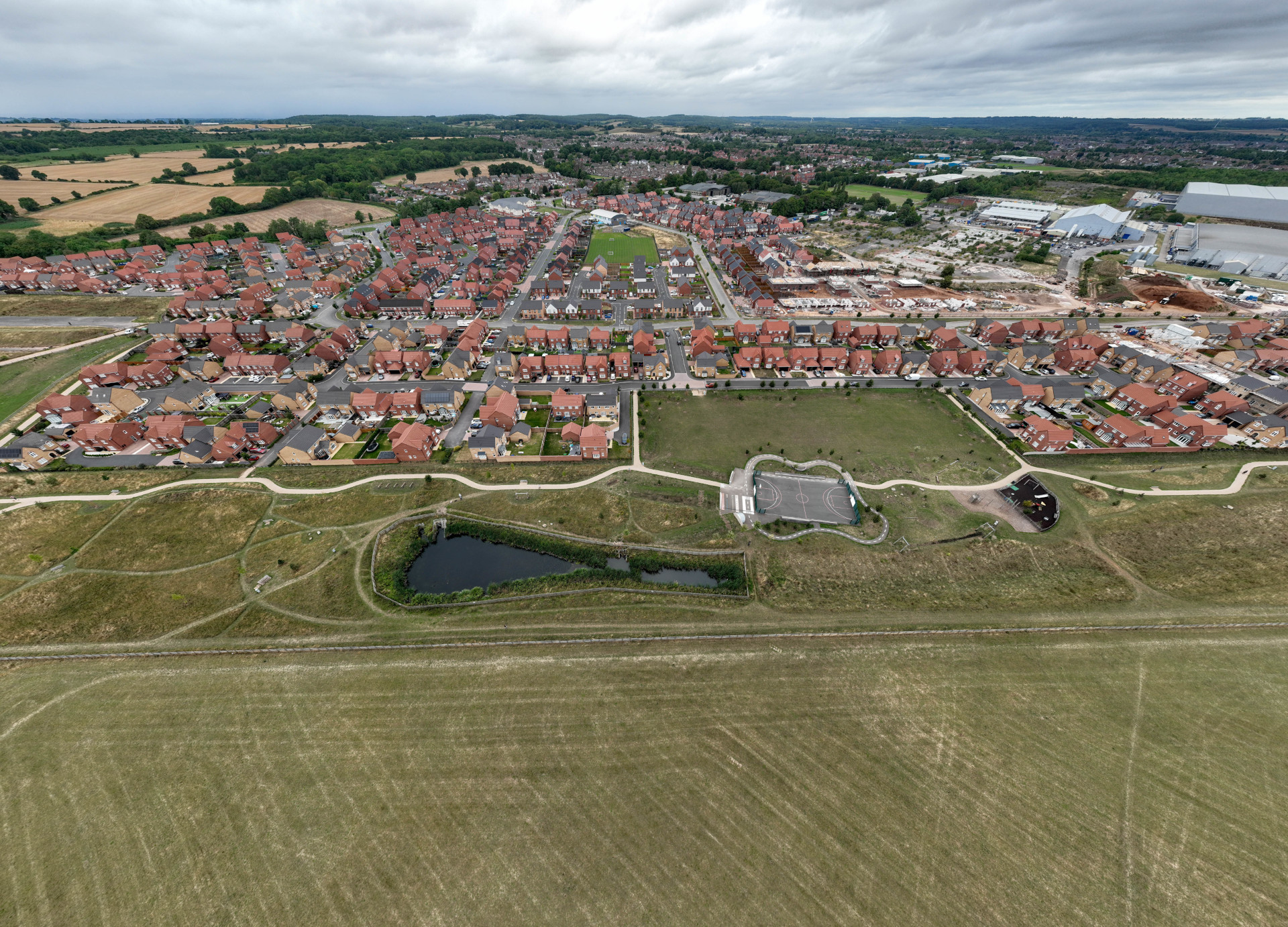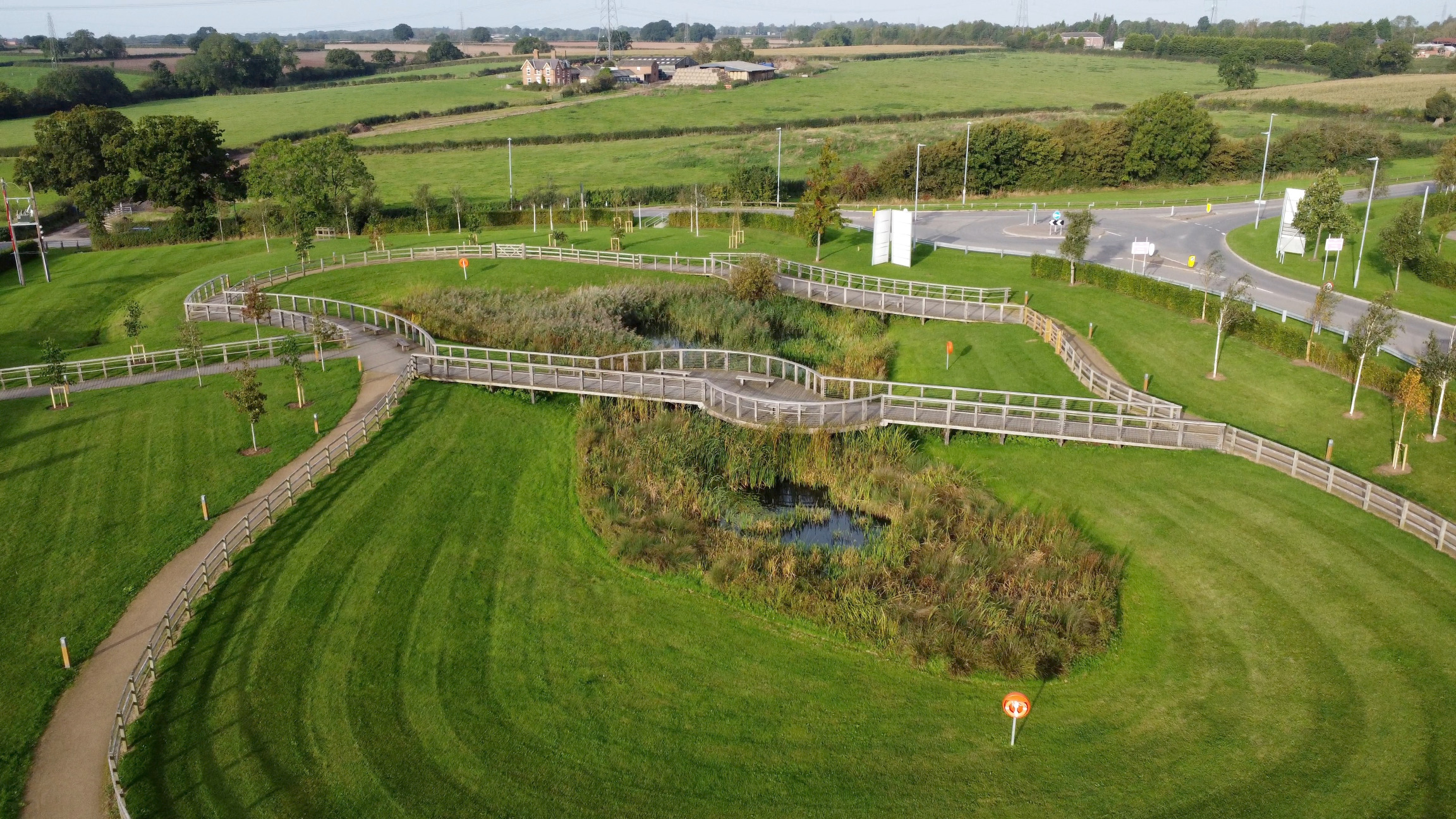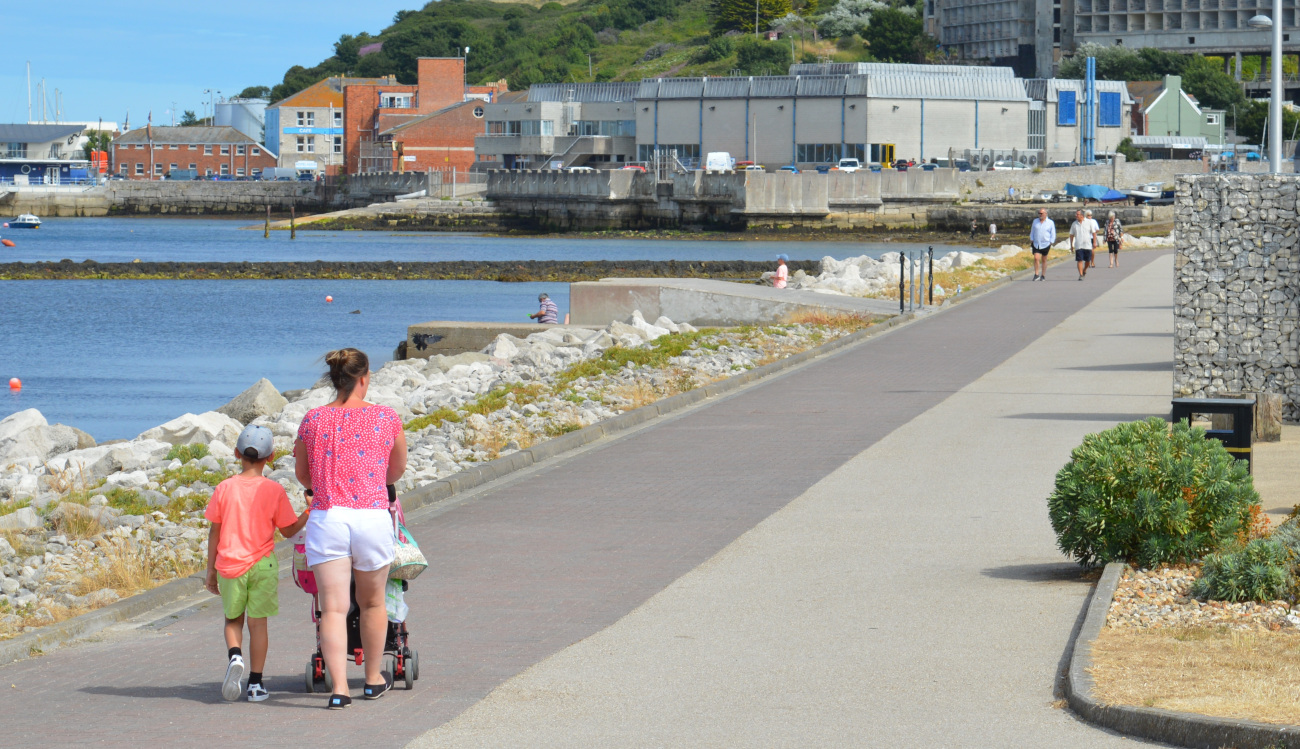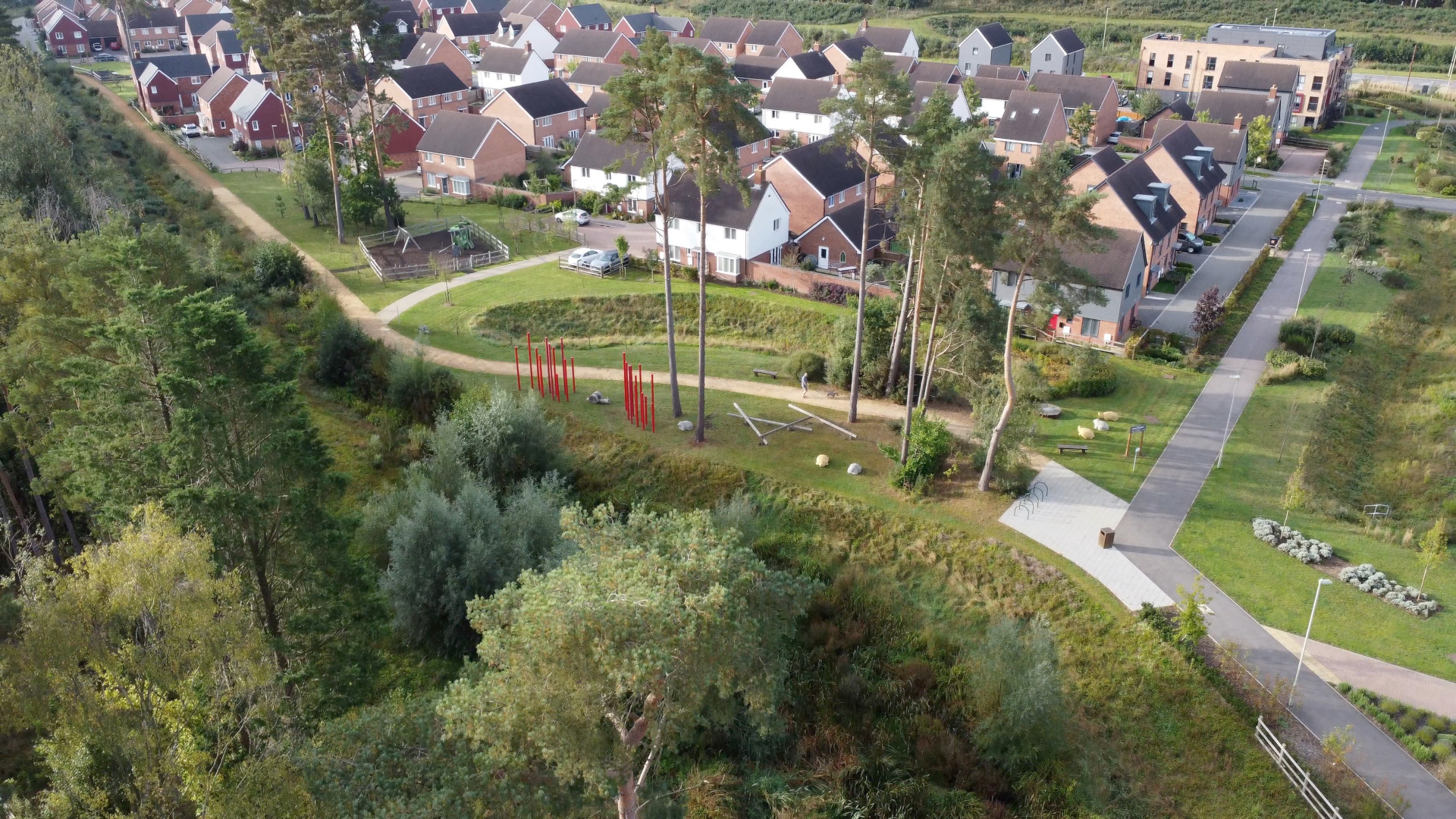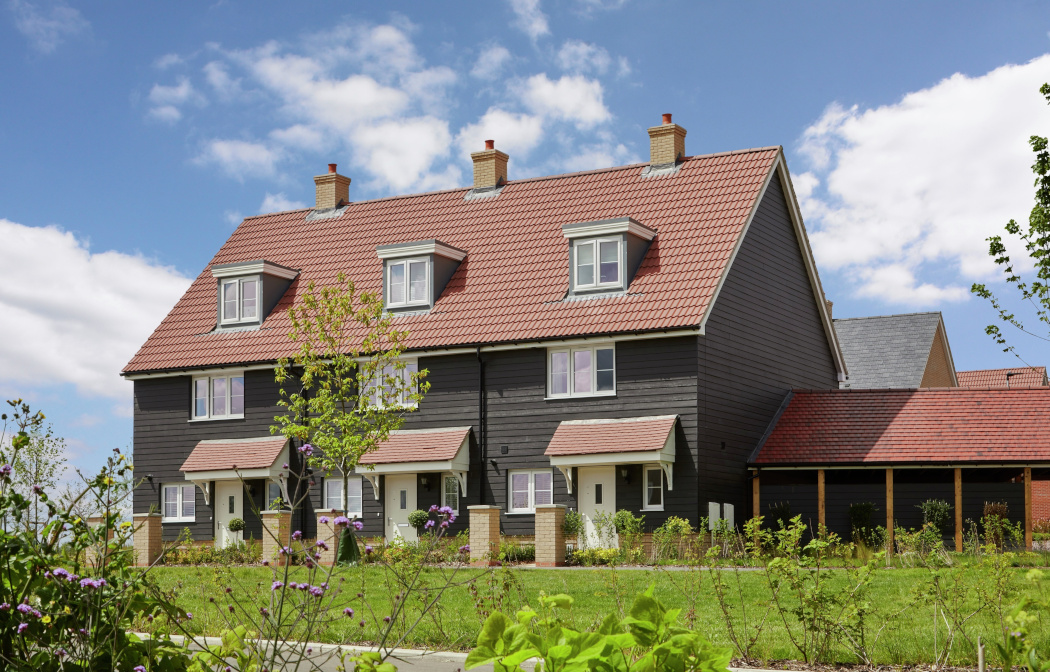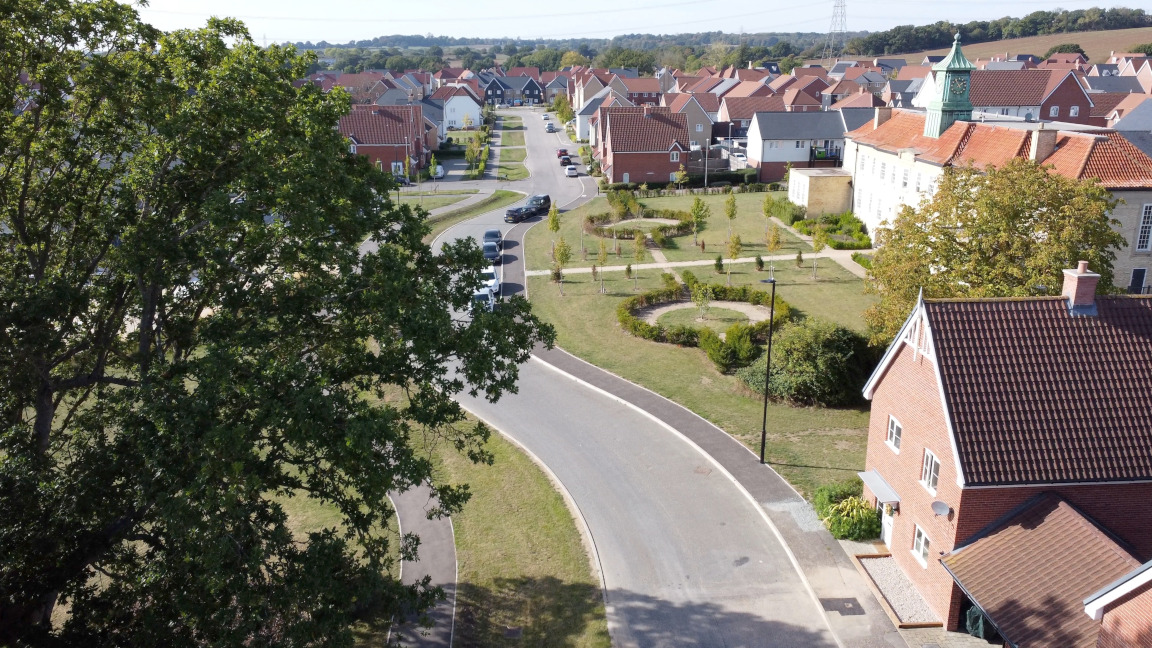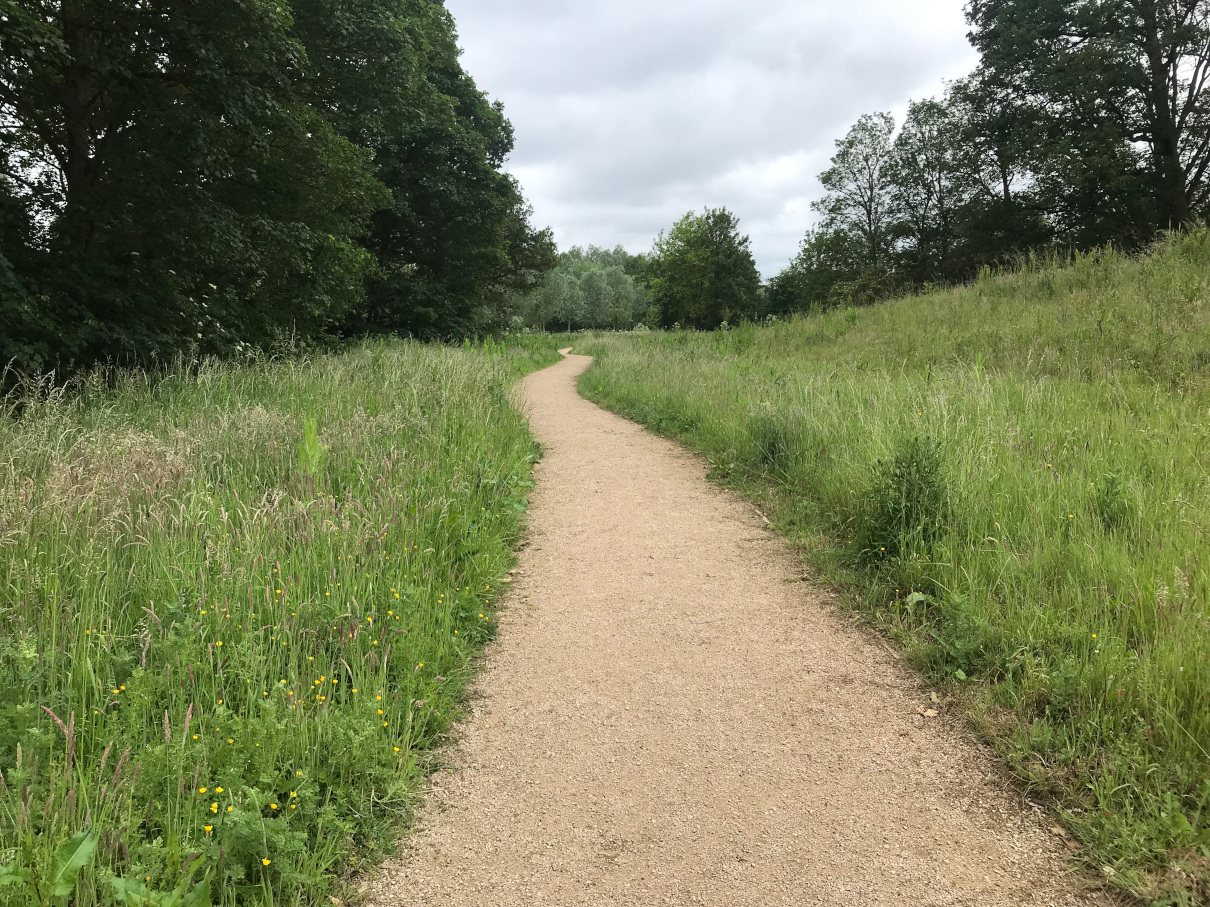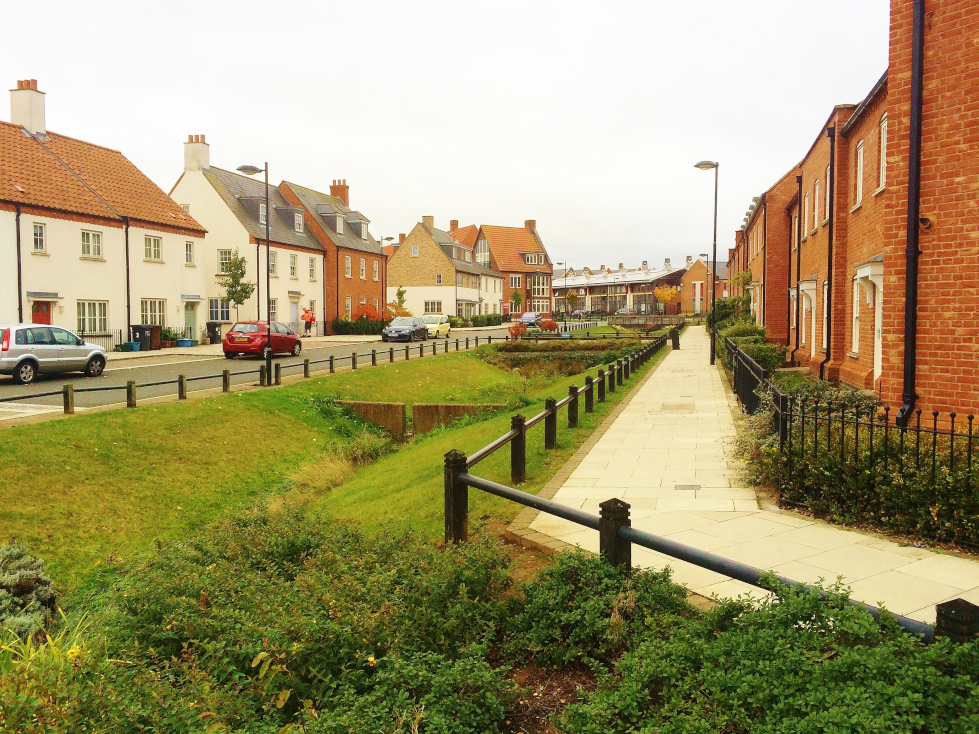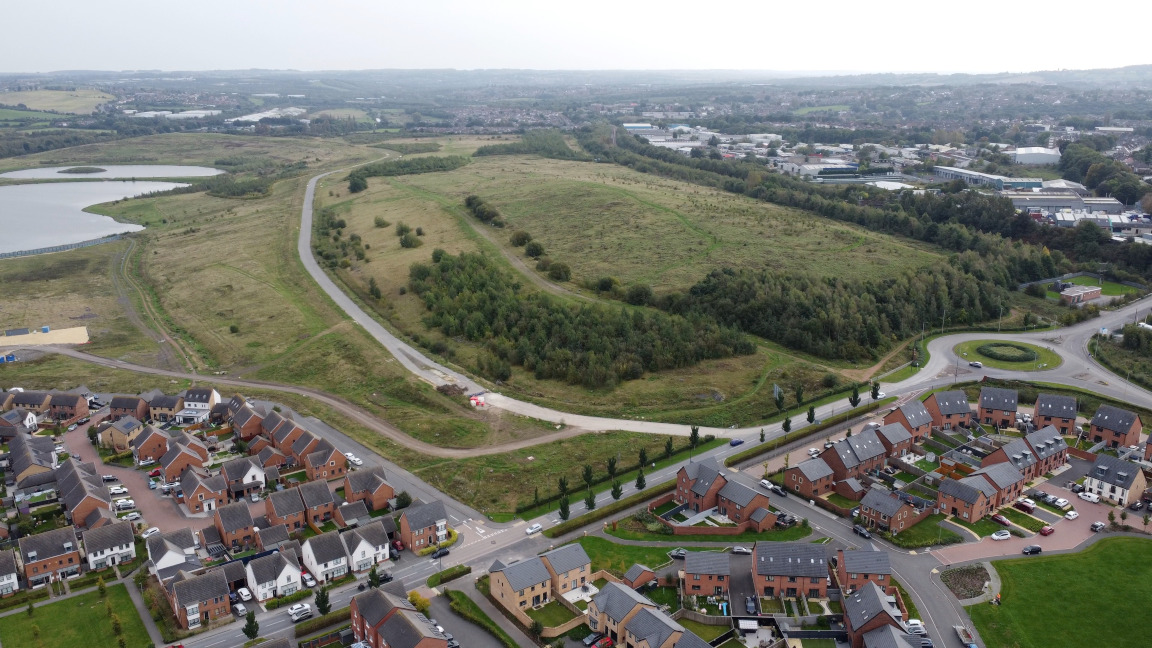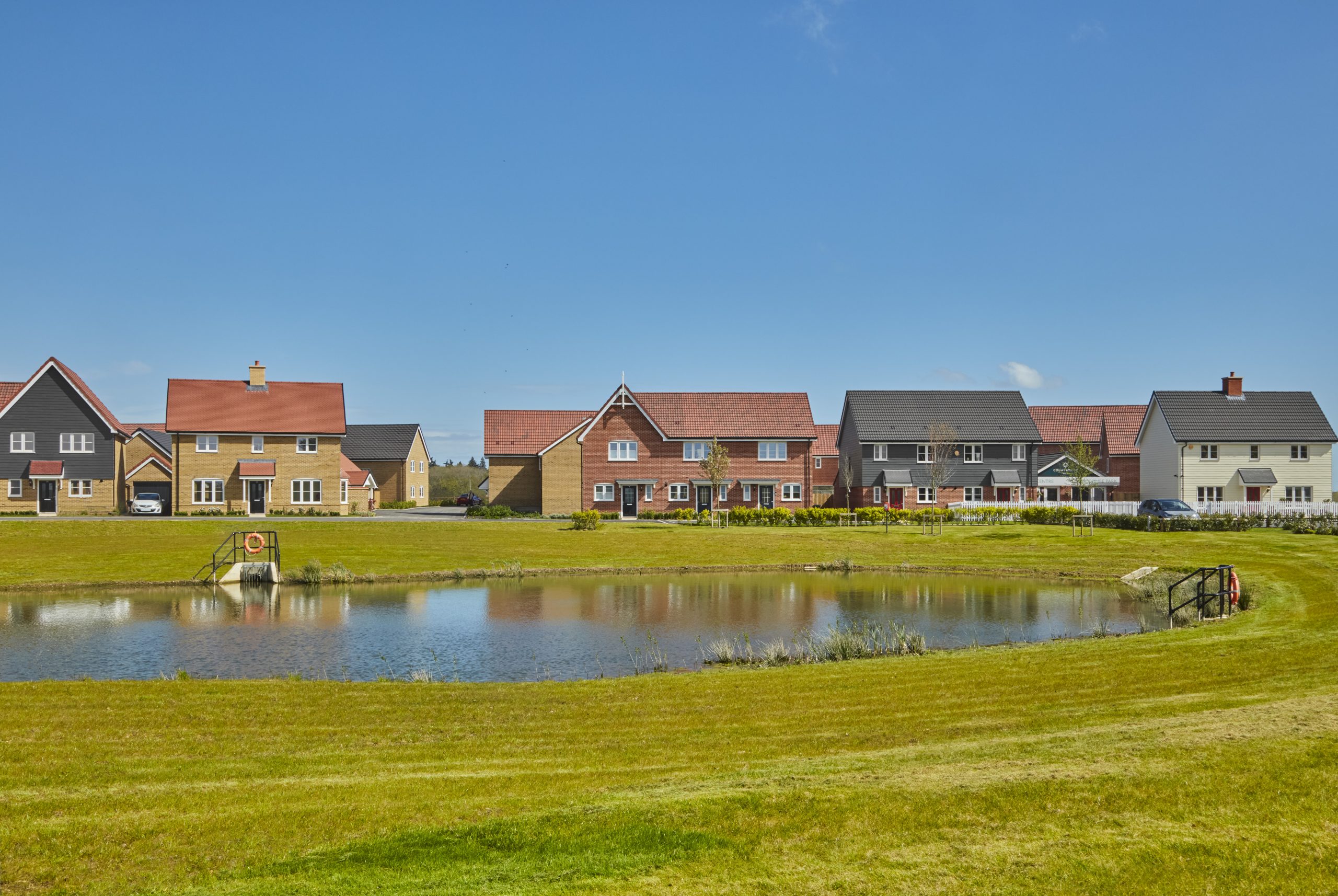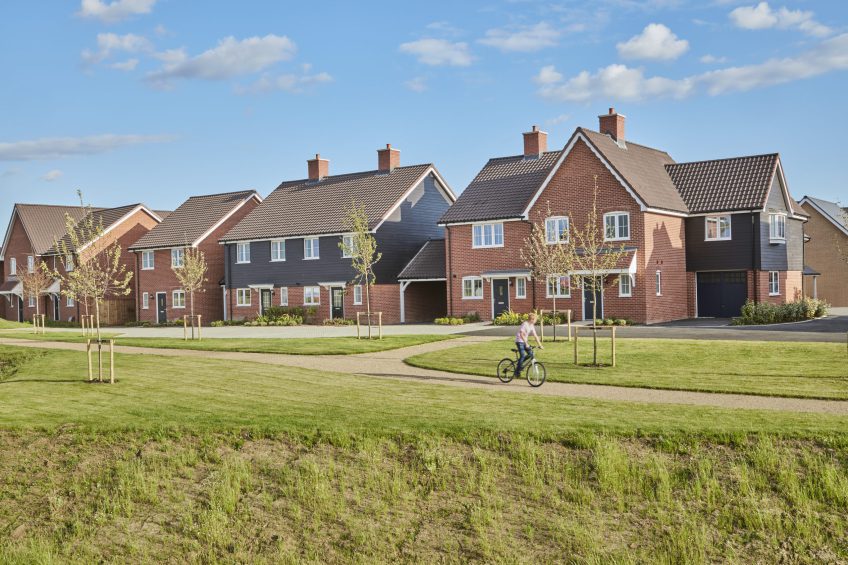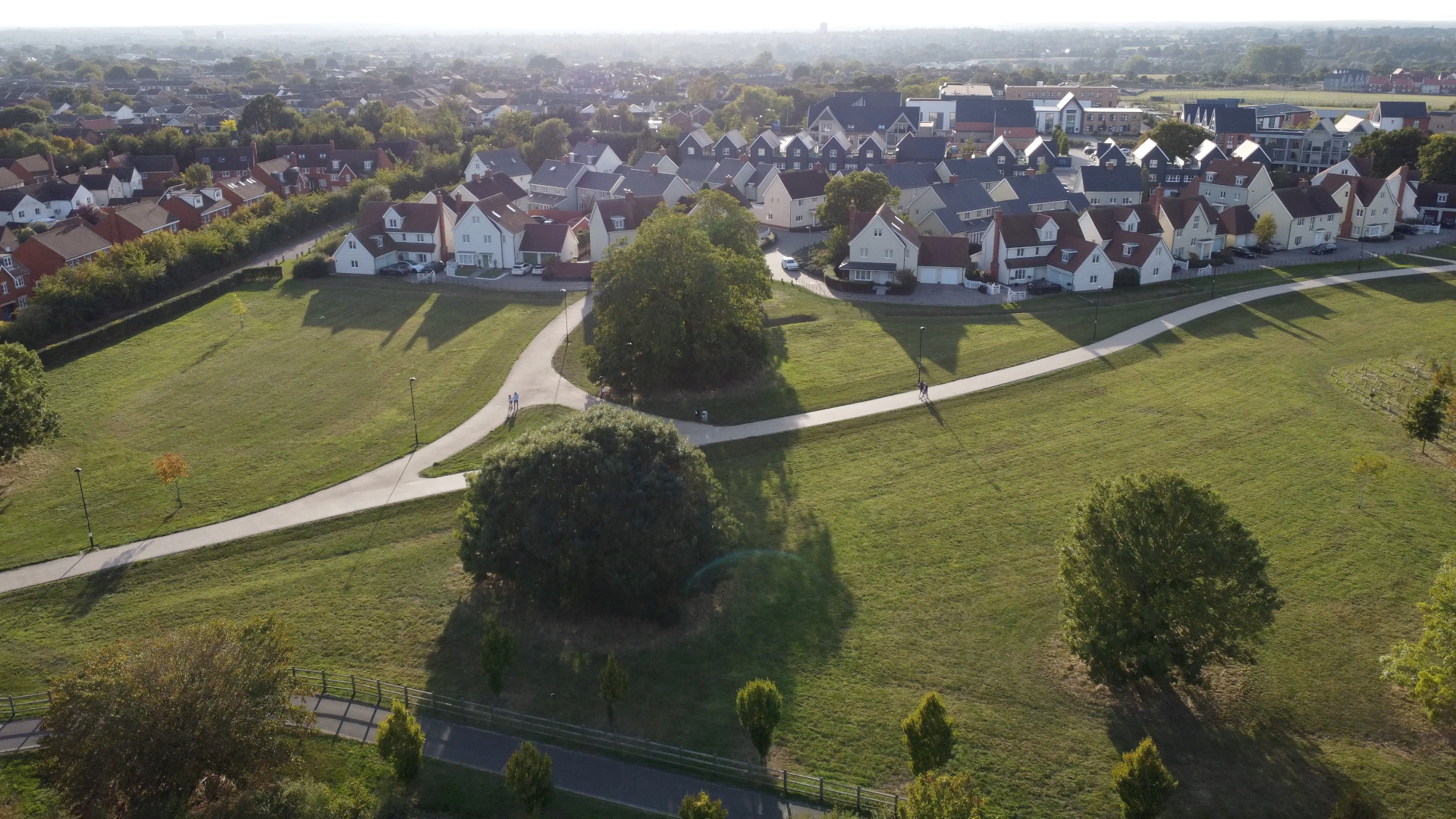
At the Land Trust, we believe that creating healthy, thriving communities isn’t just about building homes – it’s about how places look and feel generations into the future.
Our long-term stewardship approach to estate management means we are committed to enhancing the local environment and biodiversity, bringing people together through our community engagement programmes and improving health and wellbeing, all while protecting the value of your most important asset: your home.
Who is the Land Trust?
The Land Trust is a national charity, committed to the long-term sustainable management of open space for community benefit. Our vision is to improve the quality of people’s lives by creating sustainable, high quality green spaces that deliver environmental, social and economic benefits. We are passionate about identifying cost effective solutions to deliver high quality and sustainably maintained open space.
As a UK charity with over 20 years’ experience of managing parks and open spaces, the Land Trust provides cost effective and sustainable green space management that ensures our service charge customers have a safe, clean, green and attractive environment to enjoy.
The Land Trust has three trading subsidiaries, Beaulieu Estate Management Ltd, which manages our Beaulieu Estate, Osprey Quay Management Service, which owns and looks after Osprey Quay, and Land Trust Residential Services Ltd which manages the remainder of our service charge sites.
Each service charge site has a landowner (this can be the Land Trust or a third party) and the site is managed on their behalf by one of the trading subsidiaries for the benefit of community and environment.
What is a service charge & why do we have to pay it?
Service charges are collected to recover the costs incurred in providing services for green spaces, buildings and grounds, where the costs are shared amongst the homeowners. Service charges are sometimes also referred to as estate charge or maintenance charges. In the case of the Land Trust, we are responsible for the upkeep and management of the public open spaces associated with your development.
All homeowners are required to contribute towards the cost of the maintenance of the public open spaces in line with the legal agreements signed at the time of their property purchase. Details of the proportion of the various costs that you have to pay are provided in your legal documents (TP1 or a service charge deed) which you will have entered into when you purchased your property.
Service charge is a very general term and often relates to other areas on a development such as the management of blocks of flats, for example, however at the Land Trust we only manage open spaces, generally on housing estates. Sometimes homeowners may pay more than one service charge, for example for courtyards or gated parking areas. This can sometimes cause confusion; however, we are only able to advise homeowners on the service charge that we have invoiced for.
The amount that we invoice at the start of the year is based on a budget of the estimated costs for managing the estate, these costs are apportioned to homeowners based on the legal documents for the estate. At the end of each service charge year, we prepare accounts based on the actual expenditure incurred in managing the estate and these costs are apportioned to each property based on the legal documents for the estate. Where the actual apportioned cost is higher than the amount charged at the start of the year, we issue an invoice for a balancing charge, where this is lower, we issue a credit note for a balancing credit, which will be offset against future payments of service charge.
Doesn’t Council tax cover these costs?
The service charge is compulsory for all homeowners and contributes towards the management of the public green space across the development. This can include maintaining and repairing foot paths, grass cutting, leaf and litter collection, maintenance of shrubs and hedges as well as the play areas. At the point of being granted planning permission for a site, developers are required to include details of how the open green spaces on the site will be managed. In the case of many new developments, these responsibilities are handed over to a service charge provider. Council tax is a separate charge and goes towards services such as:
I live on my own do I get a discount?
Unfortunately, we are unable to offer single occupancy discounts at any of our sites as the legal agreements will not allow for this. The legal agreements are quite specific, and the costs have to be apportioned among residents in line with this.
What will happen if I cannot afford to pay my service fee?
If you are experiencing any financial difficulties or change in your circumstances, please contact our Customer Service team in the first instance to discuss payment options.
What if I refuse to pay
All homeowners are liable for the payment of their service charge in line with the legal agreements they signed at the time they purchased their property. If they do not pay, we have an obligation to collect the service charge money in good time. Therefore, should you fail to advise us of any dispute, or if we feel your dispute is not legitimate, we will take action to recover any outstanding service charges.
Our process begins with sending out reminder letters, after which we will continue to pursue any outstanding payments owed via our debt recovery processes, which may lead to court action. We take this action to ensure that your development has the necessary funding to provide services throughout the service charge year.
How do I pay my bill?
There are several methods available to you to pay your service charge bill, which are detailed below. Please quote your reference number on all correspondence so we can track payments.
Typically, your annual service charge is due annually in one instalment, however this will depend on the legal documents for your property.
For residents who would rather spread the cost, we offer a Direct Debit option for monthly instalments. Please note we are unable to accept credit cards.
We have established ‘My Land Trust’ so you can access your account, understand the detail of your bill and pay online.
You can access this service on the below address:
https://my.thelandtrust.org.uk/
In order to register for an account, click on “registration and forgotten password” and complete this form. For security purposes, the email address you use to register must match the email address on our system, if we do not have this email address, then you can contact us using our online form, please provide us with your reference, the name on the account, address of the property and the email address you would like to register with.
https://thelandtrust.zendesk.com/agent/home/tickets
You can spread the cost of your annual service charge with equal payments, taken monthly. Included in your welcome pack is a Direct Debit mandate, and remittance advice on the bottom of your invoice. Please complete these two forms and send them back to us and we’ll do the rest. Please include your reference number on your mandate.
You can pay by debit card by ringing us on 0300 3230 170. Please have your reference number to hand when you ring.
You can pay via your internet banking facility; you can do this by using the bank details outlined on your invoice. Please include your reference number in the reference field when making your payment.
Please send your cheque (with your reference number clearly written on the back) to:
The Land Trust
7 Birchwood One
Dewhurst Road
Birchwood
Warrington
WA3 7GB
How is the service charge calculated?
For each service charge year we put together a budget of the costs that we expect to spend to carry out the maintenance work at the estate. These costs are apportioned to each property based on the legal documents for the estate.
What if I am selling my property?
When a homeowner wishes to sell their property, they need to ensure that the responsibility to pay the service charge will pass onto the buyer of the property. If this is not done correctly, the seller could still remain liable for the service charge, despite selling the property.
We would advise that homeowners ensure that their account is settled up to date to ensure that there are no delays caused by
Please contact us prior to the sale and we will provide our solicitors contact details, who will guide you through the process.
If I live in a freehold house, why do I still have to pay a service fee?
If you purchase a freehold property, you will own the home and the land it is built on. There may be other areas of open space (such as play areas, woodlands, ponds and sustainable drainage systems) that form an integral part of the development which will incur costs to maintain. Your service charge payment is your contribution to the upkeep of these shared features. The legal documents for your property will outline your requirement to contribute towards the maintenance of these areas.
If my property is empty or sublet, why do I still have to pay?
The service charge is for all the public open space identified in your legal documents and each property owner contributes towards the costs of the services. If we did not charge you whilst the property was empty or sublet, we wouldn’t recover 100 percent of the costs and there would be a shortfall. Under the terms of your transfer, service charges are payable for the full duration of the ownership of your property irrespective of whether it is occupied or not.
If you rent of sublet the property, the homeowner still remains liable for the service charge.
Where are the service fee funds held?
All service charge funds are held in a named bank account which is held on trust for your development. Income from the service charge is ring-fenced and applies to the management of the estate it pays for.
Can the service charge increase/decrease?
The service charge invoiced at the start of the year is an estimate of the actual costs of providing the various services arranged by the Land Trust. The cost of these services can vary depending on maintenance requirements, charges made by contractors/suppliers, changes in the frequency or level of services required and changes in legislation.
At the end of each service charge year, we prepare accounts based on the actual expenditure incurred in managing the estate and these costs are apportioned to each property based on the legal documents for the estate. Where the actual apportioned cost is higher than the amount charged at the start of the year, we issue an invoice for a balancing charge, where this is lower, we issue a credit note for a balancing credit, which will be offset against future payments of service charge.
What is a sinking fund and why do we pay into one?
A sinking fund is a provision for future major expenditure and cyclical works. This is in place to ensure that when large items come to the end of their useful life, we can replace them, without incurring a large single year charge in the service charge. It is best practice to include a sinking fund, as this provides a more consistent charge to homeowners, removing any large fluctuations in the yearly charges.
An example of this is the renewal or major repair of play areas, landscape features and SuDS systems and other cyclical works. An amount is collected each year so that money is accumulated and available to meet expected periodic repairs or renewals.
How do you update homeowners on how the service charge money has been spent?
At the end of each service charge year, we prepare accounts based on the actual expenditure incurred in managing the estate and these costs are apportioned to each property based on the legal documents for the estate. Where the actual apportioned cost is higher than the amount charged at the start of the year, we issue an invoice for a balancing charge, where this is lower, we issue a credit note for a balancing credit, which will be offset against future payments of service charge. These accounts are independently examined by a firm of accountants.
As well as this, homeowners will receive regular updates throughout the year from the estates team updating on what maintenance is taking place on site and will also be invited to a yearly residents’ meeting.
Do we get a refund if the service charge money is not spent?
After the service charge year has ended, our service charge accounts carry out an end of year reconciliation of expenditure for each estate. We prepare accounts based on the actual expenditure incurred in managing the estate and these costs are apportioned to each property based on the legal documents for the estate. Where the actual apportioned cost is higher than the amount charged at the start of the year, we issue an invoice for a balancing charge, where this is lower, we issue a credit note for a balancing credit, which will be offset against future payments of service charge.
Why can’t I pay my Direct Debit over 12 months?
All monies for each of the service charge sites we manage is funded solely through the service charge paid for by residents. To make sure that we have enough funds to pay contractors for the works to be completed, we collect monies in monthly instalments up to two months before the end of the service charge year.
How do I move to paperless billing?
Please email mail@thelandtrust.org.uk and provide your full name, address and postcode and we will update your account to this method and advise you once actioned.
Alternatively, complete the following form: click here.
How do I reset my ‘My Land Trust’ password?
If you forget or lose your password, from the website https://my.thelandtrust.org.uk/:
A link to reset your password will then be emailed to you. Follow the instructions in the email to reset your password. Please remember to keep a note of your username and password – it is your responsibility to keep these safe and secure.
Name Change Request
If a homeowner wishes to have a name changed on the system we require this request in writing with a copy of the relevant documents as proof of the changes, e.g. a marriage certificate.
If a homeowner wishes to have a name removed, perhaps due to a separation, we are unable to do this as the account needs to reflect the names of the people on the legal documentation. We would require that the legal documents are updated, Please contact us we will provide our solicitors contact details, who will guide you through the process.
Contact us here: click here.
I want to make a formal complaint – customer complaints policy
We recognise that there may be times when you feel dissatisfied with our team’s responses to your enquiries. We always hope that any issues can be addressed locally through open communication, whether via email, phone calls, or face-to-face meetings when possible.
However, if an issue cannot be resolved, we will confirm receipt of your formal complaint within two working days and will aim to issue a full response within five working days. The complainant then has 14 working days to lodge an appeal and will receive a final response from a Director or Chief Executive Officer within 10 working days of the appeal being lodged. If more time is required to investigate the issue, we will confirm this to you within the time scale shown above.
Engaging with our communities is a huge part of what we do, and we go to great lengths to help you understand and have a say in how the green space around your home is managed. While the response from a Director or Chief Executive Officer is the final response from the Land Trust, since February 2021 we have been working with The Property Ombudsman (TPO) which has been providing consumers and property agents with an alternative dispute resolution service since 1990.
Having an independent body in place to deal with a situation like this, should it arise, should provide reassurance to you, our customers, that we are an open and transparent organisation and one that wants to work with you positively and collaboratively. TPO will review your case independently and provide a final ruling.
There are several methods available to you to pay your service charge bill, which are detailed below. Please quote your reference number on all correspondence so we can track payments.
Your annual service charge is due annually in one instalment however, we offer a direct debit option to spread the cost over 10 monthly instalments each service charge year. Please note we are unable to accept credit cards as payment.
When a homeowner wishes to sell their property, they need to ensure that the responsibility to pay the service charge will pass onto the buyer of the property. If this is not done correctly, the seller could still remain liable for the service charge, despite selling the property.
Please contact us prior to the sale and we will provide our solicitors contact details, who will guide you through the process.
Email: mail@thelandtrust.org.uk
For any service charge enquiries please click here and submit a request using the form or send an email to mail@thelandtrust.org.uk
We recognise that there may be times when you feel dissatisfied with our team’s responses to your inquiries. We always hope that any issues can be addressed locally through open communication, whether via email, phone calls, or face-to-face meetings when possible.
However, if an issue cannot be resolved, we will confirm receipt of your formal complaint within two working days and will aim to issue a full response within five working days. The complainant then has 14 working days to lodge an appeal and will receive a final response from a Director or Chief Executive Officer within 10 working days of the appeal being lodged. If more time is required to investigate the issue, we will confirm this to you within the time scale shown above.
Engaging with our communities is a huge part of what we do, and we go to great lengths to help you understand and have a say in how the green space around your home is managed. While the response from a Director or Chief Executive Officer is the final response from the Land Trust, since February 2021 we have been working with The Property Ombudsman (TPO) which has been providing consumers and property agents with an alternative dispute resolution service since 1990.
Having an independent body in place to deal with a situation like this, should it arise, should provide reassurance to you, our customers, that we are an open and transparent organisation and one that wants to work with you positively and collaboratively. TPO will review your case independently and provide a final ruling.

